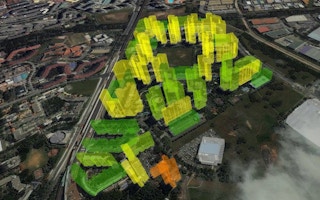At the World Cities Summit in Spain today, Singapore’s Housing and Development Board (HDB) signed a Research Collaboration Agreement (RCA) with Electricite de France (EDF) and Veolia Environnement Recherche et Innovation (VERI) to enhance the national agency’s town planning capability.
To continue reading, subscribe to Eco‑Business.
There's something for everyone. We offer a range of subscription plans.
- Access our stories and receive our Insights Weekly newsletter with the free EB Member plan.
- Unlock unlimited access to our content and archive with EB Circle.
- Publish your content with EB Premium.
The three organisations will develop a computer-based complex system modelling tool that will simulate different built environments, helping town planners choose the optimal living situation for Singapore residents.
Future recipients of the tool’s testing are said to be the new towns of Punggol, Bidadari, Tengah and Tampines North.
According to the public housing authority, this tool will be extremely beneficial in Singapore, where land is scarce and allowance for actual development experimentation is minimal.
The expertise of EDF and VERI is therefore right for the project. The former is an international French firm specialising in innovative energy efficiency solutions, while the latter is another global French company focused on waste, water and energy management.
Together they will create a computer programme that can test various housing typologies and residential settings that will enable energy efficiency, better waste management, rainwater collection and water recycling, thermal comfort and improved transportation networks.
It will also review wind patterns and solar glare in order for HDB to provide housing with minimal heat and maximum airflow. This in turn also affects the agency’s placement of rooftop solar panels.
Apart from analysing environmental factors and potential urban situations, minimising risks and improving sustainability, the modelling tool also looks at the residents themselves. Understanding the behaviour of HDB tenants and other people in the community is an important part of the project. The housing agency mentioned the impact people have on the accuracy of the models or simulation.
Overall, the tool will determine the best combinations of different living conditions to achieve sustainability targets, create better cities, and provide a better way of life.
Dr Cheong Koon Hean, HDB chief executive officer, said, “This is a sophisticated tool that will simulate complex urban scenarios and help HDB planners analyse and determine the best combination of strategies using both design and technological solutions.”
The agreement is also supported by the Singapore Economic Development Board.










